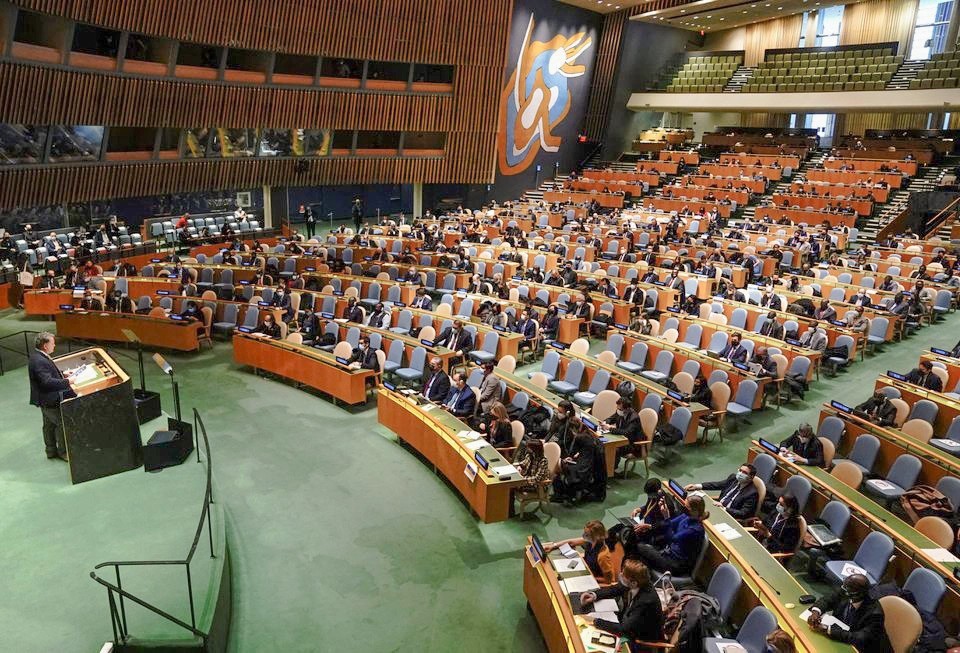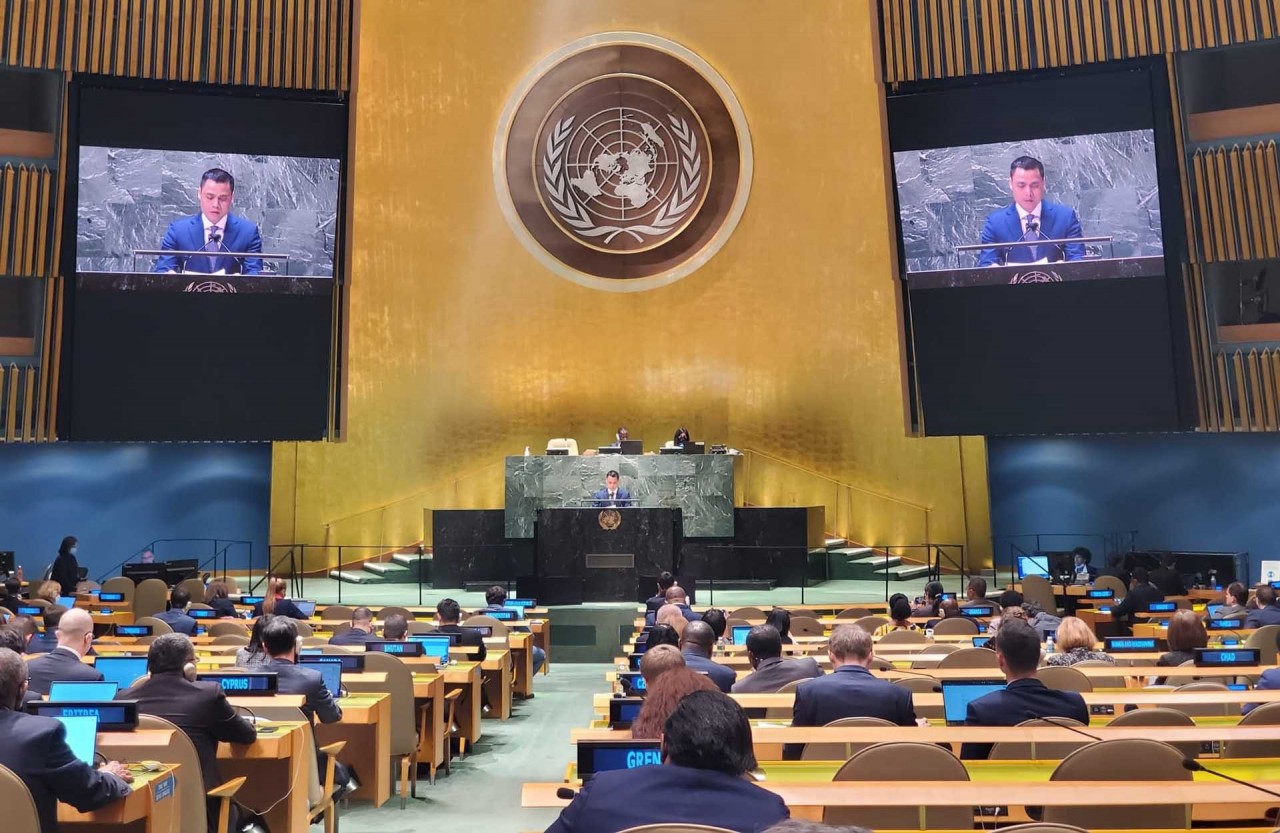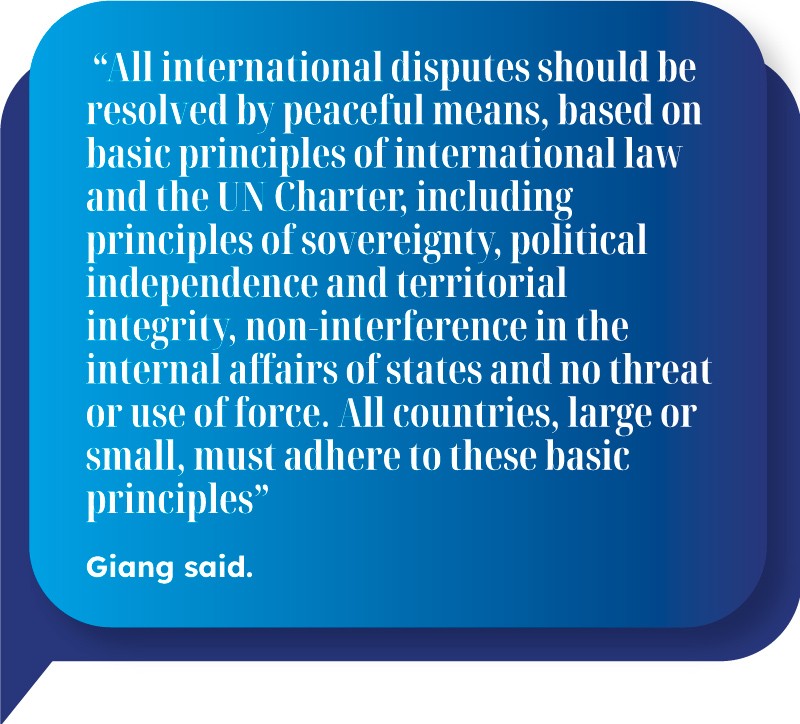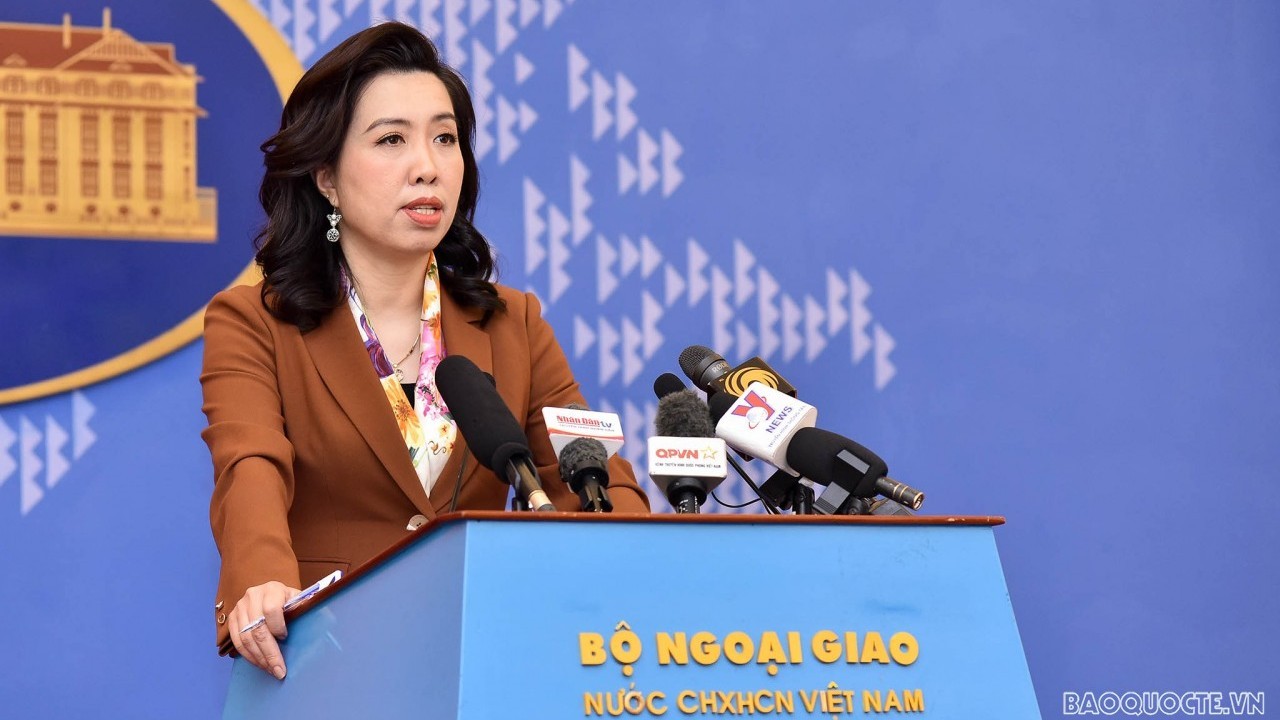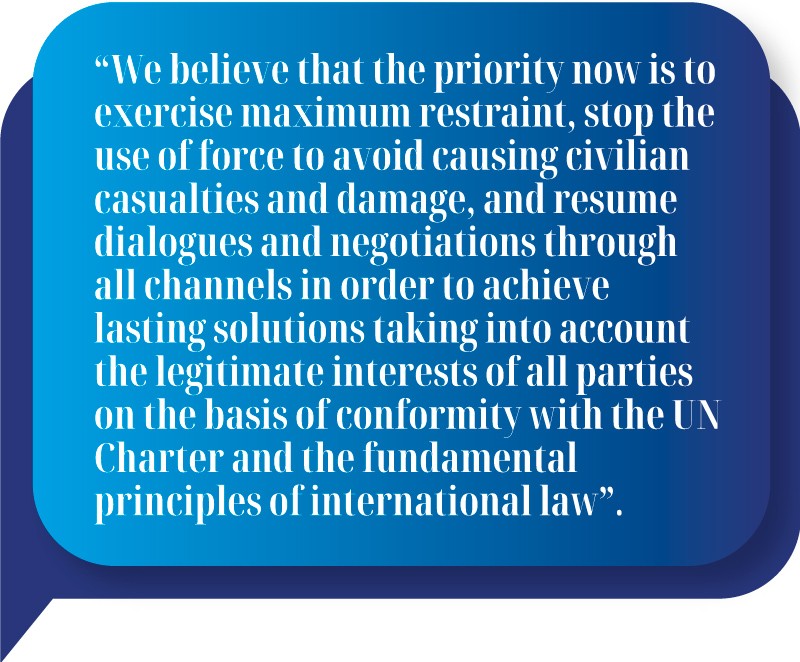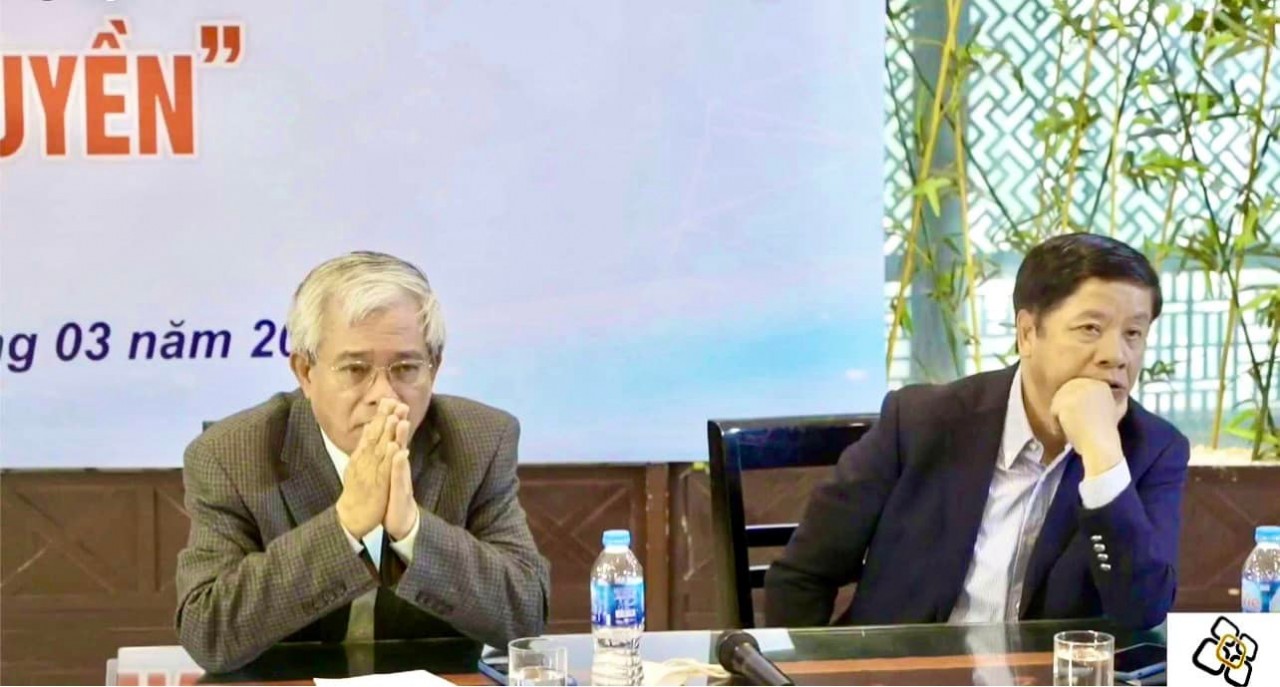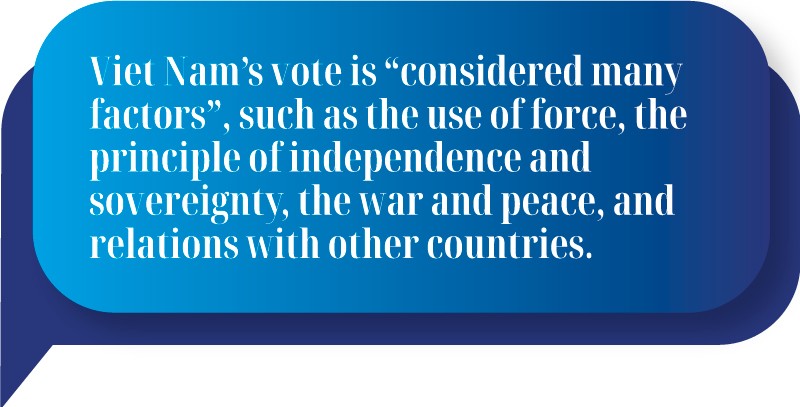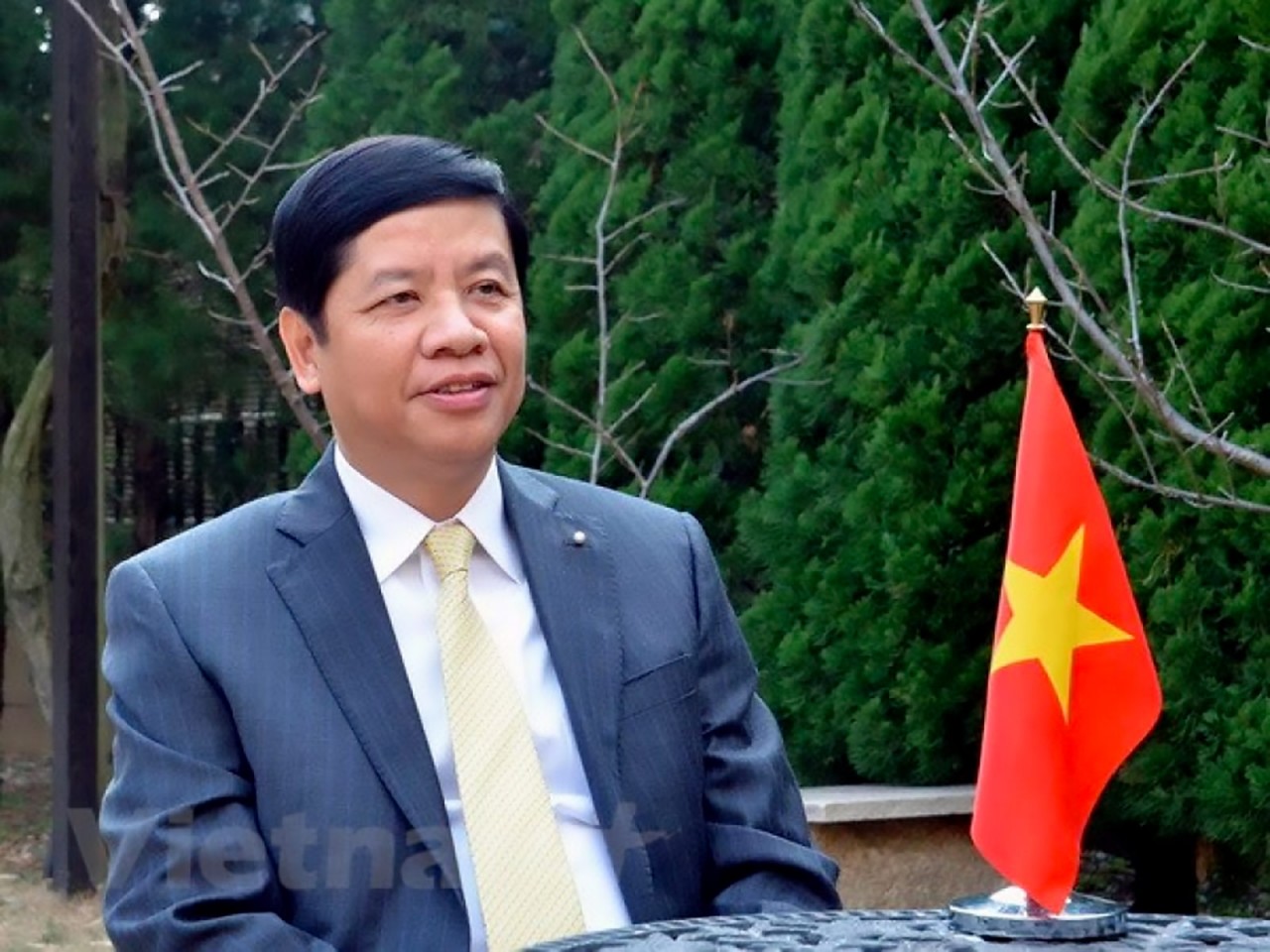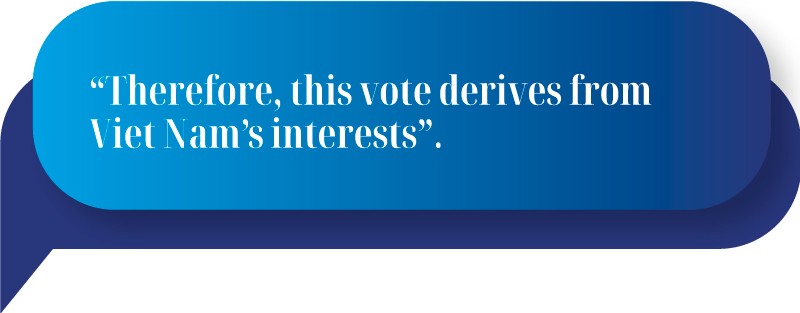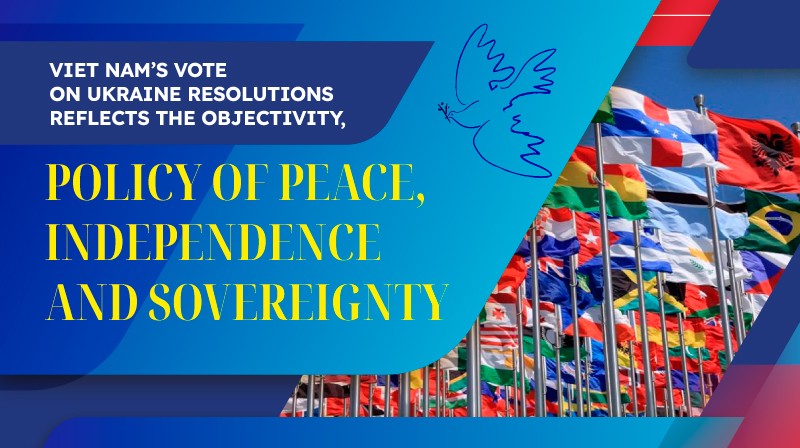 |
| Since the outbreak of the Ukraine conflict, Viet Nam has maintained a principled and steadfast position in support of resolving conflicts by peaceful means and with respect for the United Nations Charter and international law, including the principles of sovereign equality, respect for independence and territorial integrity of states, and refrain from the threat or use of force. In its voting of the United Nations (UN) Resolutions on the Ukraine conflict, Viet Nam has called on all concerned parties to ease tension, apply a ceasefire, and re-opening a dialogue in a bid to seek long-term solutions aimed at resolving differences while taking into account the legitimate rights and interests of relevant parties.
Viet Nam’s official stance on UN Resolutions Viet Nam’s stance on Ukraine conflict was emphasized by Ambassador Dang Hoang Giang, Permanent Representative of Viet Nam to the UN, at meetings of the General Assembly. At the 11th emergency session to discuss the situation in Ukraine (February 28 - March 2), Ambassador Dang Hoang Giang emphasized the importance of respecting international law and the UN Charter. "All international disputes should be resolved by peaceful means, based on basic principles of international law and the UN Charter, including principles of sovereignty, political independence and territorial integrity, non-interference in the internal affairs of states and no threat or use of force. All countries, large or small, must adhere to these basic principles," Giang said.
Expressing concern about the current armed conflict situation in Ukraine, a sovereign member state of the UN, Ambassador Dang Hoang Giang said that Viet Nam and other ASEAN member countries had issued statements on the matter on February 26. It is imperative that maximum restraint and an immediate end to the use of force be taken to avoid further casualties and damage, especially against civilians. Viet Nam calls on relevant parties to de-escalate tensions, resume dialogues and negotiations through all channels to reach a lasting solution that takes into account the interests and concerns of all parties on the basis of international law, especially the principle of respect for the sovereignty and territorial integrity of states. Such solutions would end suffering and make great contributions to peace, security and development in Europe and the world at large. On April 7, at the resumed 11th emergency special session of the UN General Assembly on the Russia-Ukraine conflict, Ambassador Dang Hoang Giang reaffirmed the consistent Vietnamese stance on the settlement of international disputes through peaceful measures in line with the UN Charter and international law. Ambassador Giang underscored the country’s concern about the impact of the war in Ukraine on civilians and information relating to casualties among civilians over recent days. Viet Nam opposes and condemns all forms of attacks against civilians in violations of international law, international humanitarian law and international human rights law, he said, while emphasizing the need to verify recent information in a transparent, open, and objective manner with the co-operation of all relevant sides. Ambassador Giang stressed that the ongoing conflict in Ukraine, if not resolved peacefully and expeditiously, will continue to affect the entire world, given the spillover effects now seen across regions. Viet Nam is therefore convinced that the only way forward is to de-escalate tension, resume dialogue and negotiation through all channels, with a view to achieving long-term solutions that take into consideration the interests and concerns of all parties, in accordance with international law. The UN and the wider international community should continue to encourage and create favourable conditions to hold dialogues and diplomatic negotiations among relevant parties as they seek peaceful and comprehensive solutions, Ambassador Giang reaffirmed. Comments on factors influencing Viet Nam’s voteAnswering questions from the press about Viet Nam’s abstention in the UN General Assembly votes on March 3rd, Vietnamese Foreign Ministry Spokesperson Le Thi Thu Hang stated: “Our view is that Viet Nam always closely follows and is extremely concerned about the armed conflict in Ukraine which is affecting peace and stability in the region and in the world.”
The spokesperson said: “We believe that the priority now is to exercise maximum restraint, stop the use of force to avoid causing civilian casualties and damage, and resume dialogues and negotiations through all channels in order to achieve lasting solutions taking into account the legitimate interests of all parties on the basis of conformity with the UN Charter and the fundamental principles of international law”. Recently, at the talk of the Digital Cafe Club with the topic “Russia - Ukraine conflict: A small country in a political power vortex” in Ha Noi, Mr. Pham Quang Vinh and Mr. Nguyen Quoc Cuong, two former Deputy Foreign Ministers cum former Vietnamese Ambassadors in the US, said that Viet Nam’s abstention on the recent UN General Assembly resolution on Ukraine conflict was the result of thoughtful considerations, demonstrating national interests, independence, and sovereignty, respect of international law as well as the objectivity in handling of international relations. In his 38-year diplomatic career, Ambassador Pham Quang Vinh had 27 years of experience in the UN, including two terms at the Vietnam Delegation to the UN in New York. He said that the handling of relations with other countries as well as voting stance must be based on three factors. “Firstly, the crisis has a long history with innumerable interwoven factors, each party having legitimate interests in one way or another. Secondly, Viet Nam’s principle is to respect the independence and sovereignty of other countries as well as international laws. Thirdly, Viet Nam takes an objective and moderate stance, harmoniously handling relations and interests in the past and the future”, he said. In addition, it is necessary to pay close attention to specific contents of the draft resolutions, such as whether they reflect the above-mentioned factors and whether they are balanced to help to resolve conflicts and promote peaceful dispute settlement, added Ambassador Vinh. According to the former Deputy Minister, during the voting process on the Ukraine conflict, Viet Nam’s vote “considered many factors”, such as the use of force, the principle of independence and sovereignty, war and peace, and relations with other countries. That Viet Nam is independent, sovereign, and steadfast in its principles is of the utmost importance and is consistent with its foreign policy. However, Viet Nam also objectively considers the correlation of relations, intertwined interests and multi-faceted benefits as we have a lot of partners and friends and there are different views among them. Mr. Pham Quang Vinh, therefore, said that handling all these matters requires a lot of consideration and is not easy. Independence, sovereignty and compliance with the above-mentioned principles and factors is the consistent policy of Viet Nam in general, not only in handling this crisis. Moreover, it should be noted that the countries which voted abstention do not necessarily share similar points of view. In addition, Ambassador Pham Quang Vinh emphasized that, from the above principles, it is necessary to read the contents of the resolutions very carefully to see whether they reflect the above-mentioned factors in an objective and balanced way or not, and to examine many other aspects. Apart from NATO’s expansion to the East, Russia’s concerns which have been warned about, the ups and downs in the relationship between Russia and Ukraine, and the complication caused by major power geostrategic competition, there are many other issues that we must discuss and draw lessons from. When the situation was close to explosion and Russia gathered troops on the border, although there had been efforts to organize dialogues with various parties, it could be noticed that there had been a lack of trust and the parties had not listened to one another. The broken-out conflict has brought about a lot of consequences. It is urgent that the parties exercise restraint and find solutions, especially through dialogues, so that the conflict can be ended soon. It can be seen that a military solution will hardly lead to a satisfactory solution for all parties, even for Russia, which has launched a special military campaign, as well as for common peace, stability and security for Europe, in the short term as well as in the long term. Therefore, according to the veteran diplomat, political solutions and negotiations are urgently needed. Amid the hostilities and the complicated situation, the parties concerned, especially Russia and Ukraine, have continued to maintain negotiations and have witnessed initial positive signs in the bilateral negotiations. The two sides have evaluated the results of the recent negotiations in Istanbul, in which Ukraine came up with quite a specific plan on neutrality and international assurance. It is obvious that there are a lot of obstacles ahead, including territorial issues regarding Crimea and Donbass. It is recommended that the parties continue these efforts, and in the immediate future, there should be an agreement on a ceasefire and reduction of hostilities to support negotiations and humanitarian activities. Ambassador Pham Quang Vinh commented on the content of the resolutions of the General Assembly that should cover all the principles and factors mentioned above. Concerning the conflict, it is necessary to facilitate opportunities and create a favourable space for political resolution. That is what Viet Nam wants. The abstention must be understood in the way that Viet Nam strongly supports the principles, but it also shows that the draft resolutions did not fully represent the above-mentioned aspects. Reflecting Viet Nam’s independent foreign policy Referring to Viet Nam’s abstention, Ambassador Nguyen Quoc Cuong said that it was a reasonable vote, given Viet Nam’s status and its own interests. Former Deputy Foreign Minister, once in charge of relations of Viet Nam with Russia, stressed: “Every time Viet Nam votes at the UN, each vote derives from Viet Nam’s interests," “the vote represents an independent foreign policy that originates from Viet Nam’s national interests.”
According to Ambassador Nguyen Quoc Cuong, looking back at history, Viet Nam and Russia (formerly the Soviet Union) have had close relations. Among the major powers with veto power in the Security Council, the only country that Viet Nam hasn’t had a war with is Russia. When Viet Nam was embargoed by the US and the West, the only major power in the Security Council that didn’t join the move was also Russia. In addition, the two sides have cooperated in many other fields. “Therefore, this vote derives from Viet Nam’s interests.” Emphasizing Viet Nam’s independent foreign policy, Ambassador Nguyen Quoc Cuong said: “At present, some countries may not be satisfied, but there may come a time when a certain country wants Viet Nam to be the moderator because of such votes. For example, in order to solve the North Korea issue, both the US and DPRK wanted Viet Nam to host the DPRK-USA Hanoi Summit. It's due to Viet Nam’s stance in the whole process; moreover, Viet Nam has had a good relationship with both sides. In the long run, it is likely that the parties want Viet Nam to play a certain role.” Future prediction and policy suggestions The two former Deputy Ministers made many comments regarding the future of the Russia-Ukraine conflict as well as policy suggestions for small and medium countries. According to Ambassador Pham Quang Vinh, it seems that the only military solution will not help to achieve the set goals of Russia itself, let alone the overall situation of this conflict would not allow that. Maybe there would be a political solution. For example, Kiev could become neutral and not join NATO or amend the constitution to abandon the goal of joining NATO. Ukraine itself may well have been aware that being admitted to NATO would not happen in the near future.
Ambassador Nguyen Quoc Cuong said that although the situation in Ukraine had been predicted in advance, it had happened relatively by surprise. This surprise has created a series of unprecedented issues. Firstly, this conflict created the biggest turning point in Europe since the Cold War. The Helsinki Accords signed in 1975 have been considered as the framework for post-war European security. This conflict, with the risk of spreading to the whole continent, will lead to a series of economic problems and an immigration crisis, with long-term consequences for Europe in the near future. According to Ambassador Nguyen Quoc Cuong, it's very difficult to predict the outcome of the conflict while its impact is extremely far-reaching, creating a huge challenge to international law. Mr. Nguyen Quoc Cuong stressed the significance of international law when it comes to defending small and medium countries. Viet Nam has persistently pursued the principles of international law. “International law, independence, and sovereignty, etc. are principles that must be maintained because they are our weapons”, he said. Ambassador Nguyen Quoc Cuong also stressed that small and medium countries need to pursue the policy of diversification and increasing self-reliance. Internet security is especially crucial and Viet Nam has to prepare for its defense and deterrence capacities ahead of potential attacks. | ||||||||||||

